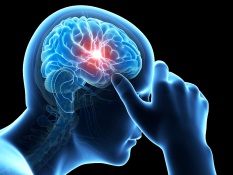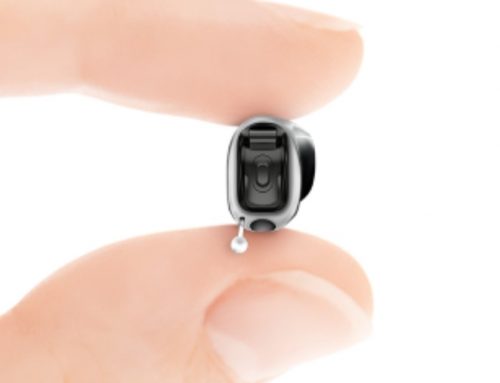Last November I shared my thoughts on our Dizziland blog, introducing the dizziness connection to Vestibular Migraine, or Migraine-Associated Vertigo (MAV). Today I’m revisiting it for a variety of reasons.

First, it’s a popular topic that we address every day at our Institute. Secondly, I welcome the opportunity to help our patients, followers and interested audiences to learn about balance-related challenges they or a loved one may face. Lastly, our Institute doctors of audiology have vast expertise with Vestibular Migraine, and understand it well. They partner daily with our patients and physicians, customizing programs that reduce,minimize and control this often misunderstood issue.
So together, let’s take a closer look at Vestibular Migraine.
It occurs when migraine disease affects the inner ear.
It also tends to occur in those who already have a history of migraine. Migraine is frequently misdiagnosed; patients may discover that headaches that they have experienced for years will be then correctly diagnosed as migraine–associated vertigo (MAV).
MAV, or Vestibular Migraine, can occur outside of a migraine headache or migraine aura. Symptoms can fade in and out and even change in intensity. For some, an attack can be brief, lasting a mere seconds or minutes. Yet others may report it lasting for over an hour. No matter the length, Vestibular Migraine can occur multiple times daily, making them disabling in their own way.
Vestibular Migraine is believed to affect up to 3% of the general population, many whom remain undiagnosed. 1 in 10 who experience migraines may suffer from Vestibular Migraine.
Some may experience dizziness, or feeling like their balance is off in the midst of their headaches. Common balance-related symptoms may include:
- Trouble walking or standing
- A sensation that you are spinning
- A sensation that the world is spinning or moving abnormally
- Feeling sick with any movement, including those caused by a car, movie or computer
- Feeling as if you are losing your balance or confused
To accurately identify Vestibular Migraine, it’s much more than distinguishing like symptoms. Communication is key, and our doctors want to learn your story! Your assistance in describing symptoms and other important detail serves a crucial role in your health care.
It’s also important that your primary physician is aware of information so your history can be monitored for change. We work closely with referring physicians so you receive an optimal continuum of care. (A physician referral is not needed for a visit to us; we take self and patient referrals as well).
Here are some of the areas our doctors and patients explore together to identify Vestibular Migraine. Take a moment to think about the how you may describe these to your doctor:
- Sensation – does it feel as if you are spinning, lightheaded, disoriented or unsteady? Any sense of fullness in one or both ears?
- Severity – the degree of the symptoms
- Duration – the length of time you feel affected
- Activity – what type of movement may bring on an episode
- History – any personal or family history of migraine or balance-related issues
- Sensitivity and Headache: if you experience dizziness, do you ever have a bad headache? Do you experience light or noise sensitivity?
- Other symptoms, such as hearing loss or ringing in the ears?
By sharing your experience with our doctors, we forge a pathway designed to integrate with the primary migraine medical care provided by your lead physician or specialist. Our evaluation and testing expertise allows us the understanding that results in accurate diagnosis and treatment. We can determine if another imbalance condition (rather than Vestibular Migraine) is affecting your inner ear, such as BPPV (Benign paroxysmal positional vertigo) or Meniere’s Disease.
Our skillfully trained doctors of audiology are vestibular physiologists who can help you to sort these symptoms and areas out, achieve a correct diagnosis and craft your own personalized treatment plan using Advanced Vestibular Treatment™ (AVT). This is our Institute’s proprietary approach directed solely by our doctors of audiology. AVT is frequently more effective in resolving symptoms caused by vestibular disorders than more traditional medications and therapy.
If you believe you may be living with Vestibular Migraine, come talk with us. No one should live with discomfort, fear or little relief through mismanaged diagnosis or treatment.
For some, medication serves to prevent or lessen the severity of a migraine that has already started. We can help guide you towards healthy lifestyle choices to better avoid and manage Vestibular Migraine triggers, along with stress reduction, developing more routine sleep tips, and making healthy meal and diet choices. As part of your dynamic care team, we provide these resources to your physician, so together we may track your most effective response and outcomes.
We want to help you with lasting relief. It is truly, our passion.
Wishing you good health and wellness,
Dr. Mango
For more information, please visit additional areas of our www.dizziland.com site.
In addition, WedMD offers this review of Vestibular Migraine www.webmd.com/migraines-headaches/vestibular-migraines#1


Can migraine associated vertigo affect and change the color, texture and density of your stools … along with other symptoms like constant ear popping, feeling of fullness in ears ,
Phil,
Thanks for your inquiry and comments.
GI symptoms that you describe are not associated with Migraine Associated Vertigo. If you are experiencing these symptoms, you may want to consult with a GI specialist directly. The symptoms you describe as ear popping and feeling of fullness in the ears are symptoms that can be associated with Migraine Associated Vertigo. We are happy to assess if you would like to contact us directly.
Our next blog post later this month will focus on common vestibular symptoms.
Wishing you good health,
Newwport-Mesa Audiology Balance & Ear Institute